#Auld French
Text
.
#I was today years old when I learned that ‘auld lang syne’ is old English and not French#alia talks#edit: I stand corrected courtesy of @shelomit that it is actually from scots
6 notes
·
View notes
Photo
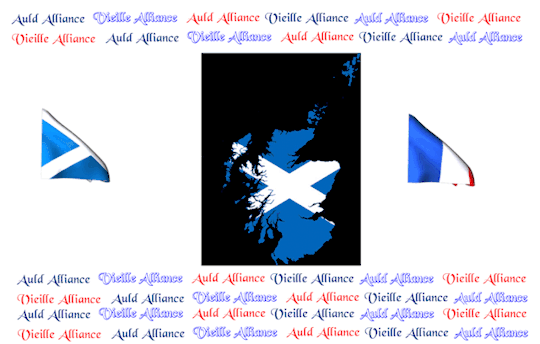

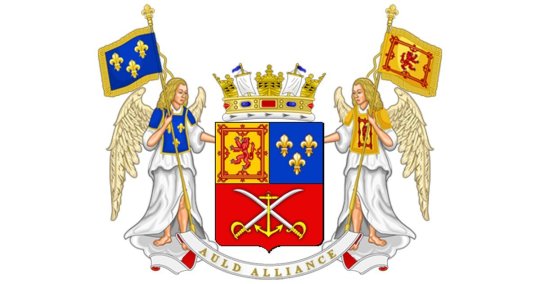

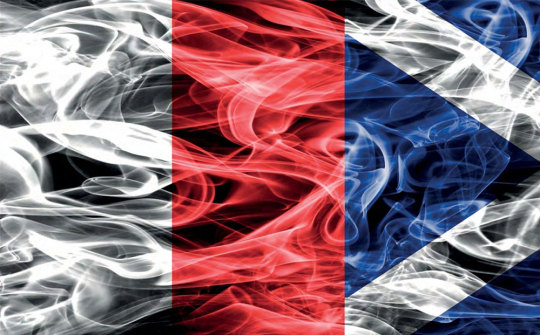

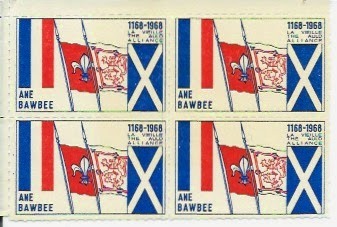

On October 23rd 1295 the “Auld Alliance” treaty was signed between John Balliol, King of Scots, and Philippe IV of France.
The treaty stipulated that if either Scotland or France was attacked by England, the other country would invade English territory. However, this wasn’t quite as even-handed and mutually helpful as it seemed. For one, because the English had lands in France, all the French were required to do was continue their struggle against the English on their soil.
The cost of any outright war between Scotland and England, meanwhile, had to be borne entirely by the Scots.
But for a tiny nation like Scotland, alliance with mighty France was of great symbolic importance – even if it didn’t stop the English frequently invading Scotland during the centuries the Auld Alliance ran.
If you read my posts you will have seen the mention of battles fought, not only in England, but on French soil, where Scots fought and died, we were regarded as elite soldiers.
Shakespeare’s ‘Henry V’ rightly portrays the Battle of Agincourt in 1415 as one of England’s greatest military victories. For the French it was a disaster that led to the near collapse of their kingdom. In their darkest hour the Dauphin turned to the Scots, England’s enemy, for salvation.
Between 1419 and 1424, 15,000 Scots left from the River Clyde to fight in France. In 1421 at the Battle of Bauge the Scots dealt a crushing defeat to the English and slew the Duke of Clarence.
Honours and rewards were heaped upon the Scots army by the French. The Earl of Douglas was given the royal Dukedom of Touraine and the Scots army lived well off the land, much to the chagrin of the French peasantry.
Their victory was short lived however; at Vernuil in 1424 a Scots army of 4,000 men was annihilated. As mercenaries they could have expected no mercy and those who were captured were dispatched on the spot. Despite their defeat, the Scots had brought France valuable breathing space and effectively saved the country from English domination.
Many Scots continued to serve in France. They aided Joan of Arc in her famous relief of Orleans and many went on to form the Garde Écossais, the fiercely loyal bodyguard of the French Kings, where they were at the very heart of French politics.
Many Scots mercenaries settled in France although they continued to think of themselves as Scots. One such man was Beraud Stuart of Aubigny: a third-generation Scot immigrant, Captain of the Garde Écossais from 1493-1508, and hero of France’s Italian wars. To this day both he and other Scots heroes of the Auld Alliance are celebrated in Beraud’s home town of Aubigny-sur-Neve in an annual pageant.
The Auld Alliance wasn’t simply a military alliance; it was based on a long-established friendship founded on the Scots love of French wine.
The signing of the Auld Alliance in 1295 might have given the Scots French support against England, but it also gave the Scottish merchants the privilege of selecting the first choice of Bordeaux’s finest wines - a privilege which was eagerly protected for hundreds of years, much to the annoyance of English wine drinkers who received an inferior product.
French wine was landed on Wine Quay of Leith and rolled up the streets to the merchants’ cellars behind the water front. The wine landed was mostly for the elite of Scottish society, with most commoners drinking whisky or beer, but it seems to have been popular with everyone for Hogmanay celebrations.
Trade, especially of wine, has a tendency to fly in the face of political changes and alliances. After the Reformation, the Auld Alliance was no longer feasible between Protestant Scotland and Catholic France, but the trade in Claret continued. People simply kept drinking it.
An example of this process can be seen in the post-Reformation destiny of St Anthony’s fund: a charitable fund raised on the back of the wine trade. The fund was simply converted to Protestantism by King James VI and passed onto the Old Leith Parish Church.
As late as the 1670s, Scots merchants were still going to Bordeaux to get their first choice of wine. Even after the Union of Parliaments with England in 1707, Scots continued to smuggle Claret into Scotland to avoid taxes. Scots of all persuasions, Jacobite or Hanoverian, continued to drink Claret in preference to patriotic Port - especially when toasting the exiled Stuart kings as 'the King over the water’.
21 notes
·
View notes
Note
While I feel that hws France is hard to portray I do wonder what headcanons you have for him. Care to tell a few that come to mind?
a lot of my headcanons of francis/françois are from the british imperial + sea/east asian perspective, so with that in mind, these are some thoughts i've had:
a. françois' strengths are that he can be very charming and good at putting people at ease. he is somebody, if you ran into him somewhere, just comes off as a really interesting person. he can talk for ages about his passion for philosophy, art, literature, science and cooking without it getting boring to the listener.
b. he can be a really good lover too and is that sort of person who considers it a point of pride to make his partners enjoy his company. the sort of person who will make dinner and probably also a good breakfast for you. but one of his flaws is that he can also be pretty self-centred at times, and sometimes he uses his charisma to get out of things or simply dodge issues in his personal relationships.
c. françois, much like arthur, is in the Bad Parent club vis a vis matthew in the 17—18th centuries. where they differ however, is i feel that arthur was controlling but more...present, whereas françois was more...dismissive. matthew would get letters from arthur instructing him to do this and that, which for matthew at least acknowledged him, whereas françois might just not even write to him much at all, especially after matthew came under arthur's control.
d. françois really clicked with alfred during the revolutionary war. it helped that alfred was punching arthur in the dick, but i think that françois for all his flaws, genuinely possesses a somewhat more idealistic streak (than say, arthur imo) so that gelled well with alfred spouting all kinds of enlightenment thoughts (especially since he was also reading french writers like Montesquieu).
e. françois and lien (vietnam) have a complicated (to say the least) relationship due to the history of french imperialism over vietnam; i see francis being much younger than her (she and yao are peers in age!), so lien fitted him very much into her prior experience as an older female nation being forced to deal with 'boys playing at being empires'. lien probably shot him in the face at least once during the first indochina war, that tried to re-establish colonial rule over vietnam in the 1950s. however, i do think they can talk more cordially in more recent decades, with normalisation of ties. cooking is perhaps one topic that is a common interest—vietnamese banh mi is a kind of sandwich originating from french baguettes that incorporates local ingredients, and it's a really tasty and popular streetfood. there's also a big french-vietnamese population in paris today.
f. kiku was absolutely not impressed by monet's la japonaise, nor 'madame chrysanthème', the wildly racist and orientalist mess that Madame Butterfly was based on. it was exoticising, not flattering to him—he was however, more amenable to those of françois' artists that incorporated japanese artistic techniques in more genuine ways, or with françois' own view of aesthetics and his knowledge and interest in engineering.
g. yao, much like kiku later, was someone françois was very interested in culturally—as seen from the boom in chinoiserie when trade with china began back in the 17th century. i think french is probably one of the first european languages yao learns (besides portuguese). it's a fairly functional trading relationship—until of course, french imperialist interests began expanding in yao's sphere of influence and the opium wars.
h. i'm a fruk fan so naturally i think his love-hate relationship with arthur is one of his most significant r/ships—arthur has been a neighbour, friend, enemy, lover and everything in between. but! scotfra is another very, very long-term relationship important to him (auld alliance!). also on an EU level well, there's him and ludwig too.
i. naturally, he's also fairly fashionable, and i feel like he'll always eye himself critically even if he's going out casually, compared to way i can see arthur being fairly chill about strolling out in that questionable, ill-fitting acid green christmas sweater alfred sent him as a joke once. i also think françois probably smokes a fair bit, compared to how arthur's gotten a kick in the arse to cut back after WWII. and nowadays, he'll often just be relaxing with a cigarette on the balcony of his apartment with a book, or enjoying a day out in one of his museums.
#hws france#hetalia#hws england#hws canada#hws vietnam#hws china#hws japan#hws scotland#hetalia headcanons
113 notes
·
View notes
Text
Fun BSD French translation details and choices - Episode 12
(by someone who does not understand Japanese but thinks the differences with the English translation/subtitles are fun)
General notes:
Kunikida called Atsushi "this young man" instead of "the kid" today! Progress!
You will be glad to know Fitzgerald still says "old sport", just with the classic horrible French pronunciation. "auld spor".
Lucy's ability is called "Anne aux pignons verts" (Anne of Green Gables). It's a shortened version of the French title of the book, which is usually "Anne, la maison aux pignons verts" (Anne, the house with green gables), like "Anne" is the title, and the rest, the subtitle.
The game "tag" in French is called "le chat et la souris" (the cat and the mouse), or just "chat". When Lucy comments on Atsushi's power being useful in this game, it's a light pun between "jouer à chat" and him being a tiger.
I forgot to say it, but Tanizaki's ability is called "Bruine de neige" (Snow Drizzle/Mist).
Atsushi's voice gets so deep when he's angry and acting "mean" (like when threatening Lucy to drag her behind the door). Where did my soft little boy go.
And Mori's ability keeps the same name, Vita Sexualis.
Today's quote:

Lucy: Alors? Vous trouvez qu'il me va bien?
(So? You think it fits me?)
James L.: Un sac plastique t'irais mieux que ça, ma pauvre.
(A plastic bag would fit you better than that, you poor girl.)
Lucy: So? Does it fit me?
James L.: You'd look better in burlap.

VF: Je l'étais [un médecin], je ne le suis plus. Aujourd'hui, je ne suis plus qu'un adulte trop autoritaire qui essaie de faire de son mieux.
(I was [a doctor], not anymore. Now, I am only a too authoritative adult trying to do his best.)
Eng: Ex-doctor. Right now, I'm just a middle-aged man keeping a small group in line.
#did you know this guy had a name because i forgot#bsdrewatch2023#bsd french dub adventures#bsd#bungo stray dogs#bungou gay dogs#apparently i talk sometimes
31 notes
·
View notes
Text
My fellow multishippers, do you have a certain pairing where you’re happy to ship Character A with others, but Character B is only allowed to be with A?
That’s me with Arthur and Francis, respectively. I can ship Mr. Slutty Englishman with almost anyone (USUK, PrUK, SpUK, PortEng, etc.) but France is totally different. Unless he’s joining their Dover strait, I don’t want it. Any other relationship is just “pre-canon” for the eventual FrUK which happens later. Like sometimes I’ll ship a little Auld Alliance era ScotFra, but it’s with the knowledge they’ll eventually break up and be replaced by FrUK. Meanwhile if Arthur gets together with someone else, Francis just stays alone. Arthur finding non-French love means Francis becomes le bachelor eternal
Which is all terribly unfair to poor Francis, but the shipper’s heart wants what it wants so whaddya gonna do heh
#hetalia#fruk#aph france#aph england#hws france#hws england#my posts#multishipper#multishipping#i’m so sorry francis#rip your love life#it’s eyebrows or nothing#commit to the fuzz#arthur kirkland#francis bonnefoy
20 notes
·
View notes
Text
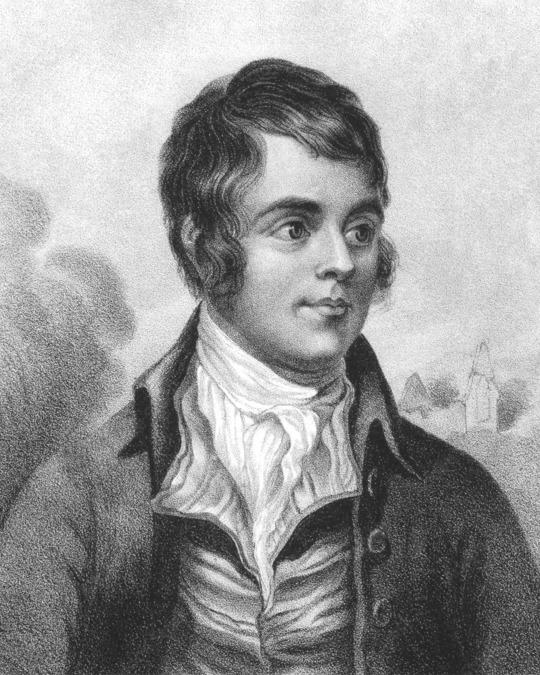
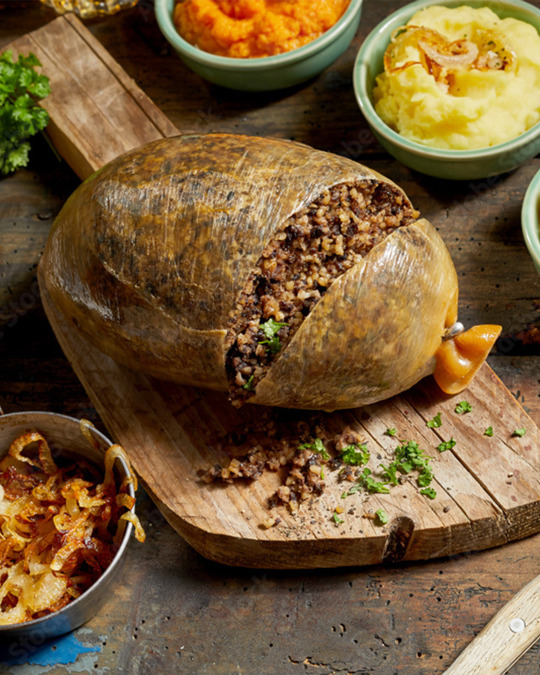
Address to a Haggis
Robert Burns
Fair fa’ your honest, sonsie face,
Great Chieftain o’ the Puddin-race!
Aboon them a’ ye tak your place,
Painch, tripe, or thairm:
Weel are ye wordy of a grace
As lang ‘s my arm.
The groaning trencher there ye fill,
Your hurdies like a distant hill,
Your pin wad help to mend a mill
In time o’ need,
While thro’ your pores the dews distil
Like amber bead.
His knife see Rustic-labour dight,
An’ cut ye up wi’ ready slight,
Trenching your gushing entrails bright,
Like onie ditch;
And then, O what a glorious sight,
Warm-reekin, rich!
Then, horn for horn, they stretch an’ strive:
Deil tak the hindmost, on they drive,
Till a’ their weel-swall’d kytes belyve
Are bent like drums;
Then auld Guidman, maist like to rive,
Bethankit hums.
Is there that owre his French ragout,
Or olio that wad staw a sow,
Or fricassee wad mak her spew
Wi’ perfect sconner,
Looks down wi’ sneering, scornfu’ view
On sic a dinner?
Poor devil! see him owre his trash,
As feckless as a wither’d rash,
His spindle shank a guid whip-lash,
His nieve a nit;
Thro’ bluidy flood or field to dash,
O how unfit!
But mark the Rustic, haggis-fed,
The trembling earth resounds his tread,
Clap in his walie nieve a blade,
He’ll make it whissle;
An’ legs, an’ arms, an’ heads will sned,
Like taps o’ thrissle.
Ye Pow’rs wha mak mankind your care,
And dish them out their bill o’ fare,
Auld Scotland wants nae skinking ware
That jaups in luggies;
But, if ye wish her gratefu’ prayer,
Gie her a Haggis!
#RobertBurns#RabbieBurns#BurnsSupper#BurnsNight#BurnsDay#ScottishTradition#ScottishTraditions#Haggis#HaggisNeepsAndTatties#Scotland#Scottish#ScottishPoetry
138 notes
·
View notes
Text
For everyone interested in the Haggis Ceremony;
The haggis is traditionally piped in, on a silver salver carried by the cook, to a standing slow clap. As it’s laid down, Robert Burns' famous poem “Address to a haggis” is recited. At the first line of the third verse, the speaker draws and sharpens (or mimes sharpening) a knife, and at the next line – “An’ cut you up wi’ ready slicht” – plunges it into the haggis and cuts it open from end to end. At the close of the recital the company toasts the haggis and then settles down to eat it.

A Haggis Address is, of course, associated most frequently with Burns Night. But it can be a theatrical addition to any Scottish-themed evening, and a wonderful way to wow anyone unfamiliar with this particular tradition.
Here's a small compilation video of the ceremony performed last night at Blair Castle at the banquet of TKOQ in Scotland.
source: Denis Broci IGS
Sam performed the Address to a Haggis at Burns Night in LA in 2019 and 2020
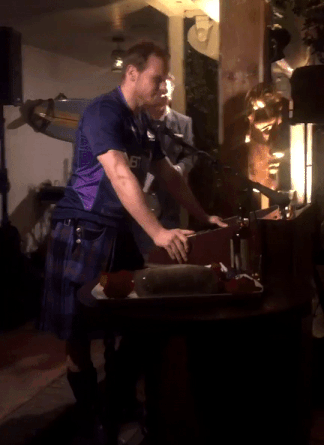
source: Contemplating Outlander
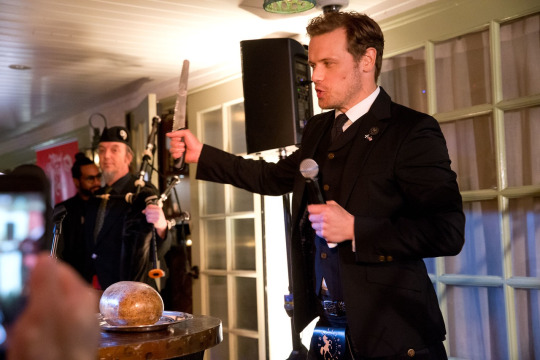

And recited the poem for Men in Kilts
youtube
Fair fa’ your honest, sonsie face,
Great chieftain o the puddin’-race!
Aboon them a’ ye tak your place,
Painch, tripe, or thairm:
Weel are ye worthy o’ a grace
As lang’s my arm.
The groaning trencher there ye fill,
Your hurdies like a distant hill,
Your pin wad help to mend a mill
In time o need,
While thro your pores the dews distil
Like amber bead.
His knife see rustic Labour dight,
An cut you up wi ready slight,
Trenching your gushing entrails bright,
Like onie ditch;
And then, O what a glorious sight,
Warm-reekin, rich!
Then, horn for horn, they stretch an strive:
Deil tak the hindmost, on they drive,
Till a’ their weel-swall’d kytes belyve
Are bent like drums;
The auld Guidman, maist like to rive,
‘Bethankit’ hums.
Is there that owre his French ragout,
Or olio that wad staw a sow,
Or fricassee wad mak her spew
Wi perfect scunner,
Looks down wi sneering, scornfu view
On sic a dinner?
Poor devil! see him owre his trash,
As feckless as a wither’d rash,
His spindle shank a guid whip-lash,
His nieve a nit;
Thro bloody flood or field to dash,
O how unfit!
But mark the Rustic, haggis-fed,
The trembling earth resounds his tread,
Clap in his walie nieve a blade,
He’ll make it whissle;
An legs an arms, an heads will sned,
Like taps o thrissle.
Ye Pow’rs, wha mak mankind your care,
And dish them out their bill o fare,
Auld Scotland wants nae skinking ware
That jaups in luggies:
But, if ye wish her gratefu prayer,
Gie her a Haggis
(Read a translation of the poem Address to a Haggis here)
30 notes
·
View notes
Note
Do we have an update on where your writings are at the moment ? Excited to see what you bring to us in the future :) xx
Hi there 👋
At the moment, I’m working on some original pieces. Lost Things will be published in September 12, 2023, and the ebook is available for pre-order now (paperback coming soon!).
My second book, tentatively titled A Little Brighter, is about 40% written. It follows 3 women and the people they fall in love with. Their stories are interconnected and a bit messy.
It takes longer for me to produce original work, given the perfectionism required when publishing independently for (attempted) profit.
I love my original characters so much, and I hope whoever reads them falls for them too. We’ve got a 2nd chance divorcing couple, another couple working through the fallout of trauma (it’s more fun than it sounds 😬), and an adorable sapphic woman who falls in love with her coworker.
There is lots of humor and passion, and a unique take on a romance novel. It’s literally 3 love stories in 1 book, so it’s kinda like writing 3 books.
As far as fic goes, I have thoughts constantly. My petals babies need their wedding. My LITW darlings are desperate to consummate their affair. My journey aulds need to find their son. I have a Voyager Time is Never Planned one-shot I’m eager to knock out. I’d really like to finish that dangling chapter of The French Connection. I have a nasty PWP modern AU one-shot to write, and another short story outlined that was prompted by a few readers’ requests.
I can’t make promises when things will get done, but since you asked for an update, this is where I’m at.
Thanks so much for all your support. 💞
36 notes
·
View notes
Text
There are a few french towns (including one I'm extreeeemly familiar with) that are twinned with Scottish cities because of the Auld Alliance, most often a Scotsman being gifted a French city as a reward for having helped us during the Hundred Years.
I can't help but imagine both Cailean and Francis going on "secret" dates ever so often to these towns (they're not secret, the locals know what's going on but they're used to it), often just walking together and maybe revisiting old places and scenery, kinda remembering the war that made them a couple.
How romantic is that ?!
#hetalia#imagine just minding your own business and then you just see your fucking country in the arms of his boyfriend#“oh here they are again”#scotfra#aph scotland#hws scotland#aph france#hws france#an ancestor of the Stuart was actually one of those scotsmans#he got Aubigny sur Nère#hetalia headcanons
15 notes
·
View notes
Text
ScotFra hcs since yesterday was ScotFra/Auld Alliance day and we need more about them in this fandom:
•They were very awkward with each other when they were younger, at first they thought it was only the cultural difference between the two of them but they realised it was more than just a cultural thing
•Alistair wasn't the confident man we know nowadays and France wasn't that much flirty so because of this they took SO MANY time to confess
• "We are not dating" "He is just a friend" then process to kiss under a tree
•They were really nervous during the wedding day of the start of the alliance, they were young and yeah everyone could see it in the room except those two
•Didn't confess at all until they defeated England in the Hundred Years Wars
•They have 20 birds, 15 dogs, 13 cats, 7 cows together
•Alistair used to feel so bad everytime Francis gave him a gift cause he didn't have anything for him
•Francis will never forget how Alistair protected Jeanne and were with her during Orleans
•Due to the huge influence of Scotland in Canada, Francis was relieved when he saw it was Scotland the one who was really taking care of Canada and remembers how the boy used to smile and talk about Scotland everytime they meet
•Alistair learned how to cook thanks to Francis but he will always go for the easiest way: fry everything
•Alistair struggled more to learn French and Francis learning Scots Gaelic
•Every time Scotland went with England to the EU meetings (back then when the UK still) in the moment France saw Scotland, it was impossible for him to be focused on the meeting, much for Germany's disgrace, England's angry and a Ireland looking everything being happy for Scotland
#hetalia#aph scotland#hws scotland#hetalia scotland#aph france#hws france#hetalia france#alistair kirkland#francis bonnefoy#scotfra#auld alliance#hetalia axis powers#hetalia world stars#hetalia world series#hetalia headcanons#historical hetalia#aph auld alliance#hetalia auld alliance#aph scotfra#hws scotfra#hetalia scotfra#scotland x france#francexscotland
65 notes
·
View notes
Photo

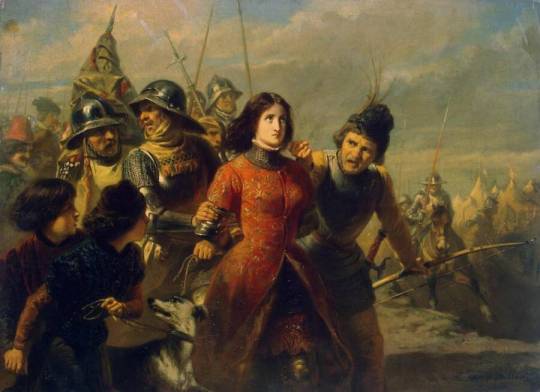

On May 30th 1431 Joan of Arc was burnt at the stake in Rouen, Normandy which was then then under English rule.
What’s that got to with Scotland? I hear you ask! Well the Scots had quite a presence in medieval France, The Garde Écossaise was an elite Scottish military unit founded in 1418 by the Valois Charles VII of France, to be personal bodyguards to the French monarchy and they fought in many battles against a mutual foe, The English, including the first great campaign of St Joan of Arc in 1429. Joan was led into the besieged city of Orléans on April 28th, 1429, to the celebratory skirl of the Scottish pipes. The tune played for her was “Hey Tuttie Taiti”. The same tune that had marched Robert the Bruce into battle at Bannockburn a century before. The same tune that Robert Burns would set to his poem “Scots Wha Hae” centuries later.
Her escort consisted of 60 Scottish men-at-arms and 70 Scottish archers led by Sir Patrick Ogilvy of Auchterhouse, hereditary sheriff of Angus. And her standard, depicting God as King of Heaven, was made a few months previous by Hamish Powers, a Scotsman living in the city of Tours.
There to welcome her was the bishop of the city. And, yes, he was a Scotsman too. John Carmichael was his name although he was known to his French flock as Bishop Jean de St Michael. A priest and a native of Lanarkshire, Carmichael was amongst the victors at Baugé and the survivors of a previous battle at Verneuil. Indeed, one of his first acts upon becoming bishop was to institute a Messe Ecossais for the souls of the Scottish dead.
That pious custom continues to this day. Historians have argued about numbers but some estimate that Scottish soldiers would have made up about a quarter of Joan’s army sent to relieve Orléans. Victory after victory ensued. The military procession to Rheims continued with the Garde Ecossaise providing an escort for both Joan and the Dauphin.
And so, in the July, King Charles VII was crowned by six bishops including Bishop Carmichael.
On 23rd May 1430, Joan of Arc was captured at Compiègne by the Burgundian faction, which was allied with the English. She was later handed over to the and put on trial by the pro-English Bishop of Beauvais Pierre Cauchon on a variety of charges. After Cauchon declared her guilty she was burned at the stake on 30 May 1431, dying at about nineteen years of age, a very brave lady.
28 notes
·
View notes
Photo
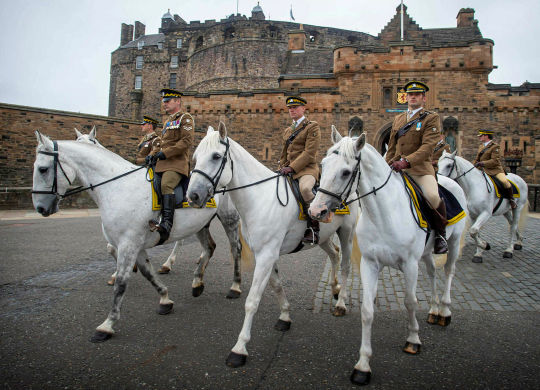
O wae is me my hert is sair, tho but a horse am I.
My Scottish pride is wounded and among the dust maun lie.
I used to be a braw Scots grey but now I'm khaki clad.
My auld grey coat has disappeared, the thocht o't makes me sad.
- Royal Scots Greys, poem recited in reaction to the change their scarlet uniforms and grey horses to khaki.
Formed in 1681, the Royal Scots Greys cavalry unit was Scotland's senior regiment. Its long and distinguished service continued until 1971, when it was merged into The Royal Scots Dragoon Guards.
The regiment was formed as The Royal Regiment of Scots Dragoons in 1681 from a number of existing troops of cavalry. Its first action was the suppression of the Earl of Argyll’s rising, launched in 1685 in support of the Duke of Monmouth’s revolt.
Following the Glorious Revolution (1688), the regiment went over to King William III, fighting for him against the Jacobites in Scotland. It was ranked as the 4th Dragoons in 1692.
The following year, the entire regiment attended a royal inspection in London mounted on ‘greys’ (horses with white or dappled-white hair). This gained it the nickname ‘Scots Grey Dragoons’. However, this only became part of its official title in 1877, when it was renamed the 2nd Dragoons (Royal Scots Greys).
After a period of home service, it joined the War of the Spanish Succession (1701-14). The regiment fought at Schellenberg (1704), Blenheim (1704), the Passage of the Lines of Brabant (1705), Ramillies (1706), Oudenarde (1708), Tournai (1709), Malplaquet (1709) and Bouchain (1711).
It spent a further period on home service until 1742, when it joined the War of the Austrian Succession (1740-48). The regiment deployed to Germany first, fighting at Dettingen (1743). It then moved to Flanders, where it served at Fontenoy (1745), Rocoux (1746) and Lauffeld (1747).
It’s next major battle honour was at the Battle of Waterloo (1815). This was its only Napoleonic battle honour, at which 201 of its men and 228 of its horses were killed attacking a French infantry brigade. In this attack, Sergeant Charles Ewart captured the French 45th Line Infantry Regiment’s eagle. This later became part of the unit’s cap badge.
A long period of home service followed until the Crimean War (1854-56). There, the regiment won two Victoria Crosses charging uphill against 3,000 Russian cavalry at Balaklava (1854).
On returning home, it saw no further active service until the Boer War (1899-1902) in 1899. During this campaign, it camouflaged its white horses with khaki dye. In the years since Balaclava, much had changed about warfare. Gone were the red coats and bearskin shakos. The Scots Greys would now fight wearing khaki. In fact, with the popularity of wearing khaki that accompanied the start of the Boer War, the Scots Greys went so far as to dye their grey mounts khaki to help them blend in with the veldt. It took part in the Relief of Kimberley, fighting at Paardeberg (1900), before joining the advance to Bloemfontein and later Pretoria, service that included the Battle of Diamond Hill (1900). It also fought in the anti-guerrilla campaign in 1901-02.
After returning home in 1905, the Scots Greys stayed in Britain until August 1914, when it moved to France.
It fought on the Western Front as both cavalry and infantry, winning several battle honours including the Retreat from Mons (1914), Marne (1914), Ypres (1914), Neuve Chappelle (1915), Arras (1917) and Amiens (1918).
According to a report in Scottish newspapers of the time it was decided to paint the horses khaki as their grey coats were too visible to German gunners. This gave rise to a comic poem posted above, of which this is the first verse.
**Royal Scots Dragoon Guards set off from Edinburgh Castle
#royal scots greys#royal scots dragoon guards#regiment#british army#scotland#soldier#horses#horse riding#edinburgh castle#military#traditions#military traditions
56 notes
·
View notes
Note
I'm French and France Maroc is gonna be insane lmfao
The Auld Alliance will be taking a backseat for that one😉
24 notes
·
View notes
Text
Aswan, Egypt
Hotel
Takes place shortly after the Oingo Boingo arc
Jotaro and Polnareff: *Smoking by the window*....
Iggy: *Sleeping on one of the hotel beds* Zzzzzzzz
Joseph: *On the phone with the hospital* ....Hm, I was afraid of that, thank you for letting me know doc, bye. *Hangs up* Well boys, I got good news and bad news: The good news is that Avdol and Kakyoin's injuries aren't serious and are going to make it. The bad news is that Kakyoin's injuries needs more time to heal, so he'll have to be cooped up in Aswan for a few days.
Polnareff: *Disappointed* Oh no, do we really have to leave him behind?
Joseph: 'fraid so.
Jotaro: I'm not surprised, *puts out his cigarette* we all saw how deadly [Geb]'s attack was, no way scars that deep can recover overnight.
Polnareff: Mmm.
Joseph: Indeed, luckily for us the doctors from the Speedwagon Foundation are on their way, so it wouldn't be too long.... *Looks around the room* Hey, who went into the mini fridge?
Jotaro and Polnareff: *Looks over and sees the fridge was raided*
Polnareff: Not me.
Jotaro: Me either, *Points at Iggy* and Iggy's been sleeping the whole time.
Iggy: *Lays on his back and farted in his sleep*
All: *Covers their noses in disgust*
Joseph: Then it must've been "our new friend" then, where is she anyway?....*Hears something coming from the bathroom* ???? *Goes to the door and hears faint drunk singing*
???: *Singing drunkenly* "Ó bhun go barr na tíre-
Polnareff: *Joins him to listen*
???: -is ar fud an domhain seo beidh *Hic* Na Gaeil ag canadh *hic* lámh ar lámh ar oíche Auld Lang Syne...."
Joseph: *Slowly opens the door*
Medea: *Sitting in an unused tub surrounded by beer cans, drunk and miserable* Ar oíche Auld Lang Syne *hic* seo muid, ar oíche Auld Lang Syn-
Joseph: Hey missy, how's it going?
Medea: *Slurring in anger* Sod off, gobshite, *hic* can't ya see I'm wallowing in my misery?
Joseph: I'm just checking to see if you're ok.
Medea: *Throws empty beer can at the door* Get out!
Joseph: *Shuts door* Ok! Ok! I'll leave you alone for a bit! *Stands up* But you're going to have to sober up soon.
Medea: *Inside* You ain't getting shit outta me, ya old buzzard! *Hic* I'm not backstabbing Lord DIO!
Joseph: *Sighs deeply* I could use a beer if she hadn't hog them all.
Jotaro: I'll grab some at the store.
Joseph: No good, Jotaro, you're underage, and Avdol told me that drinking laws in Egypt have become quite strict since Islam became commonplace.
Jotaro: Cokes it is then. *Leaves room*
Polnareff: *Sitting by the door* By the way, Mademoiselle, that's some good pretty Chinese you just sang.
*BEAT*
Joseph: *Looks back in utter disbelief * ????????
Medea: *In disbelief as well*.........WHAT!?
Polnareff: Weren't you singing in Chinese earlier? I could learn some of it when I go back to Hong Kong again.
Medea: *Opens door*
Polnareff: *Falls over* ACK! OoO
Joseph: *Goes to Polnareff and drags him away*
Medea: Ya idiot! *Hic* I was singing "Auld Lang Syne" in Gaelic! Not Chinese! *Hic* It was supposed to be for this New Year's Day and for when I killed ya guys! *Hic* And you ruined it by being alive!
Polnareff: *Sits up, rubbing his head* Gaelic? Isn't that a dead languag-
Joseph: *Covers Polnareff's mouth* OvO'''
Medea: *Stomping her foot in irritation* It's not dead! It's just an uncommon language that my mom and the Irish are trying to save, no thanks to the British!...
Joseph: *Offended* Heeeeey!
Medea: Not you, ya old bimbo! *Hic* God why are men except for Lord DIO such idiots!? *Slams door shut*
Joseph: Smooth Polnareff, real smooth. >_>
Polnareff: *Moves hand* Well I didn't know; I only knew French. DX
- Medea sings a New Year's Day song in Gaelic while drunk, while Polnareff confuses it with Chinese.
*The lyrics were found in the comment section of this video: Link
#jojo's bizarre adventure#joseph joestar#jean pierre polnareff#jotaro kujo#iggy#jojo oc#oc#incorrect quotes#new years#auld lang syne#irish language
4 notes
·
View notes
Note
mads are you french?
nah. the other bit of the auld alliance lmao <3
2 notes
·
View notes
Note
Was there any kind of resistance to James VI & I becoming King of England after Elizabeth I's death, whether from the English or the Scottish? Given the centuries of border raids, two independence wars, the rough wooing, etc. I find it hard to believe that there wouldn't be any.
That is an extraordinarily complicated question, because the answer was both yes and no.
When Elizabeth died, much of England was nervous in the fact that there were no male heirs of Elizabeth's body, and so for James VI and I to already be married with healthy children was a welcome relief for much of the aristocracy. However, the form of "what union would England and Scotland take?" was a question that vexed jurists and interests. While most everyone agreed that a regnal union was acceptable, James was King of both Scotland and England, the political union was difficult. Scotland and England had different parliamentary procedures. How would commerce work between England and Scotland? Were they to abolish all customs and tariffs, an arrangement that England felt benefitted Scotland at the expense of the English, or keep currently existing trade laws, which Scotland said must be abolished due to the regnal union. The Scottish-French Auld Alliance was particularly troublesome given England and France were perennially at war.
So as you can see, there was a whole host of legalistic problems. As for things like border raids, well, it's not like those exactly *stopped*
Thanks for the question, Beyond, or HH, however you name yourself.
SomethingLikeALawyer, Hand of the King
12 notes
·
View notes